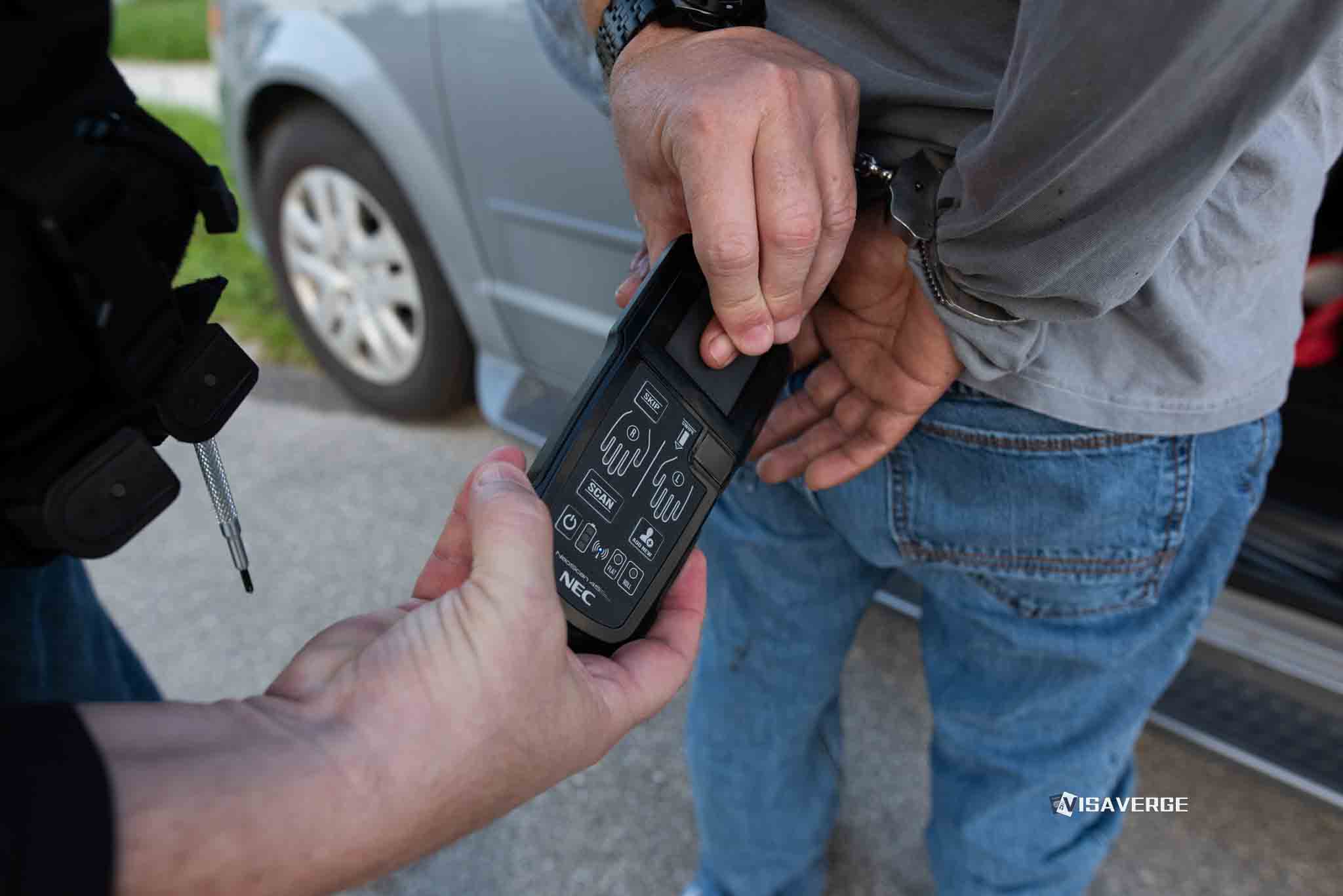U.S. Immigration and Customs Enforcement has notified lawyers for Salvadoran national Kilmar Abrego Garcia that he could be deported to Uganda with as little as 72 hours’ notice following his release from a Tennessee jail, triggering a fast-moving legal fight over a rare third-country removal. Attorneys received notice on August 22, 2025—a Friday—with the 72-hour clock set under a court directive that excludes weekends. The destination has raised alarms because Abrego Garcia has no known ties to Uganda, and the government has not explained why it selected the East African country.
According to the notification, he must also report to an ICE office in Baltimore on Monday, August 25, 2025, for further processing, even as removal plans move forward.

Recent movements and immediate timeline
He was released from criminal custody in Tennessee on August 22, 2025, and transferred into federal control for transport by a private security firm to Maryland. Under the court order and standard ICE practice, the government must give at least 72 hours’ notice before removal. That window, however, can be brief in practical terms: over a weekend, lawyers may have only a short period on the next business days to prepare emergency filings.
ICE and the Department of Homeland Security (DHS) are leading the process, with the Office of the Principal Legal Advisor handling communications. The agency has told counsel it is moving in line with the court directive, but the rationale behind Uganda as the target country remains unclear.
Case background and past errors
This case has an unusual history:
- In March 2025, ICE acknowledged an “administrative error” after officials wrongly deported Kilmar Abrego Garcia to El Salvador.
- He was later brought back to the United States 🇺🇸 in June 2025 for pending criminal proceedings.
- Court records and defense counsel say he has no U.S. criminal record beyond minor traffic violations.
- The current charge—human smuggling—stems from a 2022 traffic stop in Tennessee. His trial is set for January 27, 2027.
Defense lawyers deny any gang affiliation after the Trump administration earlier alleged a link to MS‑13, calling the claim unproven and unfair. They argue the government’s shifting treatment—including the mistaken removal and now the Uganda plan—shows an approach that prioritizes speed over fairness.
Why Uganda is controversial
Uganda’s role adds a new layer of concern:
- Legal filings and advocates tracking the case say the country has agreed to accept some “third country” deportees—people expelled from the U.S. who are not its citizens.
- The public record does not show how the U.S. matched this individual with Uganda, or whether Uganda considered his personal circumstances.
- Third-country removals are rare, and even more contentious when the person has no ties to the destination.
For Kilmar Abrego Garcia, who was already sent to El Salvador by mistake earlier this year, the possibility of removal to another unrelated country within the same year is drawing intense scrutiny from immigration lawyers and human rights groups.
Key actors and alternative offers
- DHS and ICE are coordinating the planned removal and have been in contact with defense counsel.
- Kristi Noem, identified in agency communications with reporters as a DHS official, has publicly stated the administration’s intent to press forward with deportation, reflecting a hardline approach.
An alternative path has been offered by Costa Rica:
- Mario Zamora Cordero, Costa Rica’s Minister of Governance, Police, and Public Security, confirmed that Costa Rica would accept Kilmar Abrego Garcia as a refugee or resident after completion of any U.S. criminal sentence.
- He pledged protections against torture or persecution and said Costa Rica would not send him to a third country.
That offer may come into play only after U.S. proceedings conclude.
Procedural and legal issues
The 72-hour rule is central:
- ICE’s removal operations require that notice be given to counsel before a person is physically deported.
- Lawyers for Kilmar Abrego Garcia say they will use that window to file emergency motions to stop removal, including specific arguments against the selection of Uganda.
- The court has made clear he must have access to his legal team while in ICE custody to prepare for ongoing legal matters.
ICE says it will process him at its Baltimore office on August 25, 2025, consistent with his reporting duty. General information on ICE’s Enforcement and Removal Operations is posted on the agency’s official site: https://www.ice.gov/ero.
Legal questions raised
- Can the government remove someone to a country with which they have no ties simply because that country agreed to accept them?
- What screening was done to ensure safety in the receiving country?
- Does the principle of non‑refoulement apply equally in third‑country removal cases, requiring assessment of whether the person faces a real risk of harm in the destination?
- Does a prior wrongful deportation (March 2025) increase the need for heightened safeguards?
Human rights observers say the duty to check for torture, violence, or discrimination does not vanish in third‑country cases. If DHS cannot explain why Uganda is safe for this individual, courts may question the removal.
Criminal case implications
The Tennessee criminal charge—and the January 27, 2027 trial date—add weight to defense arguments:
- Removing him now could make it difficult for him to prepare, attend hearings, or work with counsel.
- The court has already required access to legal help while in ICE custody.
- Defense attorneys will argue that a flight thousands of miles away would effectively sever practical access to counsel and undermine the pending criminal case.
Defense lawyers plan to file emergency motions to pause deportation. These filings can move quickly—sometimes within hours—with the goal of freezing the situation while a judge reviews the facts. The focus will likely include:
- Why Uganda was chosen.
- What screening led to that choice.
- Whether the government checked human rights risks.
- How removal would affect ongoing U.S. legal proceedings.
If a judge issues a temporary stay, the removal clock stops until the court decides the next step.
Logistics and counsel access
Logistics matter:
- Once a person leaves state or local jail, ICE controls movement and detention.
- The transfer by a private security firm from Tennessee to Maryland shows how fast these cases can move.
- Counsel say the August 25 Baltimore report is a key date—an opportunity to meet with the client, confirm paperwork, and file motions.
- But the 72‑hour notice, excluding weekends, may shrink their practical window. If flights are booked soon after the weekend, time will be tight.
Reactions, next steps, and wider implications
Immigration experts say this case could shape how the government uses third‑country removals. Analysis by VisaVerge.com notes these transfers often draw challenges because there are no clear public standards on how destinations are chosen—especially when the person has never lived there.
Human rights organizations are now:
- Watching the Uganda plan closely.
- Probing whether the government did a real risk check.
- Asking whether a recent wrongful deportation should trigger extra safeguards.
For defense teams, the 72‑hour window is decisive. Typical immediate actions include:
- Contact your lawyer right away and share the notice date and time.
- Ask to meet in person or by phone while in custody to review options.
- Gather key documents, like court notices and identification, and share copies.
- Request your full file from your lawyer so motions can be filed quickly.
- Keep records of any health or safety concerns that may affect the case.
Costa Rica’s offer remains a potential safe landing, but timing is the obstacle: the U.S. criminal case is ongoing, and Costa Rica’s acceptance would apply only after any U.S. sentence.
Stakes for future cases
The outcome here could influence how DHS uses third‑country removals:
- If a court allows the removal to Uganda with limited explanation and after a prior wrongful deportation, DHS may cite that precedent in future cases.
- If a judge blocks the plan, the government may be compelled to provide more transparency on how destinations are chosen and how risks are evaluated.
For now, lawyers say the central question is whether the government can remove a person with no ties to Uganda under such a tight timeline.
Contacts and where to follow updates
- ICE Office of the Principal Legal Advisor: handling legal communications related to the removal order.
- DHS Public Affairs: source for policy statements about the case.
- Embassy of Costa Rica in Washington, D.C.: channel for questions on the Costa Rica offer.
- Defense legal team: fielding media inquiries about filings and next steps.
- ICE Enforcement and Removal Operations page: https://www.ice.gov/ero (official resources and contacts).
At its core, this case is about where a person can be sent, and on what terms. The legal issues are complex, but the human stakes are clear: Kilmar Abrego Garcia faces possible removal to Uganda, a country he has never called home, just days after leaving a Tennessee jail and months after being wrongly deported to El Salvador. His lawyers are racing the clock to stop the flight. DHS and ICE say they are following a court order. Costa Rica has offered a safer landing later on, but only after the U.S. case ends. What happens next could shape not just one man’s path, but the way the United States handles third‑country deportations going forward.
This Article in a Nutshell
ICE notified on August 22, 2025, that Kilmar Abrego Garcia could be deported to Uganda with 72 hours’ notice; he must report to Baltimore August 25. The choice of Uganda—where he has no ties—remains unexplained after a prior wrongful deportation to El Salvador. Defense lawyers plan emergency motions to block removal; Costa Rica offered later acceptance after any U.S. sentence.







